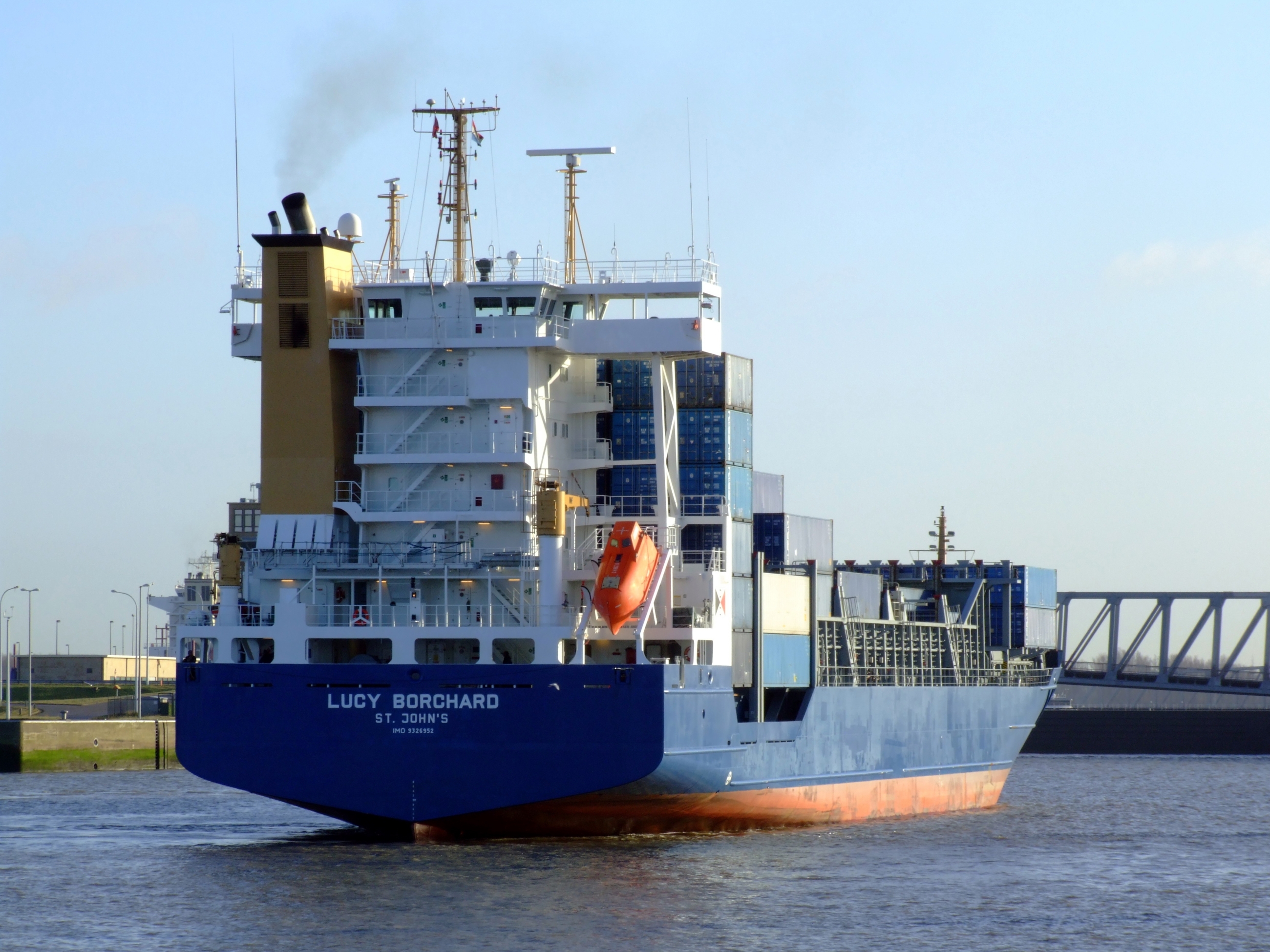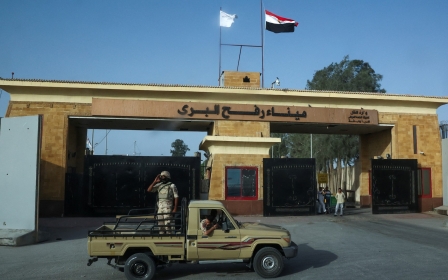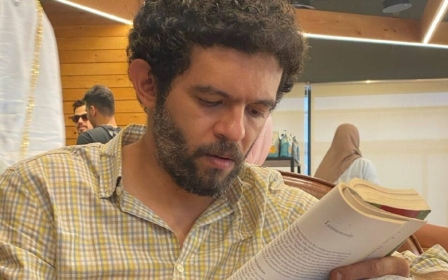Egyptian ports become ‘key supply points’ for Israel during Gaza war

Egyptian seaports have turned into important stations for cargo and cement ships transporting goods to and from Israel during the Gaza war period, according to an open source investigation.
The revelation comes as Israel continues its deadly onslaught and suffocating sea, land and air blockade on the Gaza Strip, killing more than 40,000 Palestinians since 7 October and bringing most of the population to the brink of famine.
The investigation, published Thursday by Arabi Post, tracked the activity of 19 ships over the past three months, using open source maritime data to trace the sea routes of these ships, which were limited to travelling back and forth between Israeli and Egyptian ports.
During the same period, no ships from Arab countries other than Egypt arrived at Israeli ports, the online news outlet reported.
Egyptian ports are vital points for transporting goods to and from Israel due to their proximity to Israeli ports, especially Ashdod Port, which is about 29 kilometres away from Gaza, as well as the strategic Haifa Port.
New MEE newsletter: Jerusalem Dispatch
Sign up to get the latest insights and analysis on Israel-Palestine, alongside Turkey Unpacked and other MEE newsletters
The geographical proximity of the ports reduces shipping costs, which in turn reflects on the prices of goods shipped by sea.
The tracking conducted by Arabi Post of ships that regularly transport their loads to Israel from Egypt is based on data from the activity of eight ports, two of which are Ashdod and Haifa, and six Egyptian ports located on the Mediterranean Sea: Port Said, al-Arish, Abu Qir, Alexandria, Dekheila, and Damietta.
The 19 ships included seven container cargo ships, six cement carriers, five general cargo ships, and one bulk carrier, which transports unpackaged goods such as grains, sugar, and coal, Arabi Post reported.
The investigation showed that over the past three months, from the beginning of June until 22 August, 12 ships (seven container ships and five general cargo ships) primarily operated between Alexandria, Damietta, Dekheila, Port Said, and al-Arish, and between the Israeli ports of Haifa and Ashdod.
These ships sailed under the flags of Panama, Liberia, Israel, Egypt, Antigua and Barbuda, Singapore, and Saint Kitts and Nevis.
According to Vesselfinder ship tracking data, the ownership of these 12 cargo ships belongs to companies in Egypt, Israel, Turkey, Greece, Singapore, Germany and Cyprus.
The common factor among most of these ships is that the two destinations they sailed to the most during the past two years (2022 and 2023) were Egypt and Israel.
Among the most frequent ships sailing to Egyptian and Israeli ports is the cargo ship Lucy Bochard, which sails under the flag of Antigua and Barbuda and is owned by a company in Germany, as well as the Egyptian ship Pan GG.
The data shows that the Lucy Bochard sailed to Israeli ports 25 times in 2023 and to Egyptian ports 23 times. In 2022, it sailed to Israeli and Egyptian ports 24 times each.
The ship Pan GG meanwhile sailed to Ashdod 28 times in 2023, and to Haifa Port four times. In 2022, it sailed to Ashdod 41 times.
The Egyptian ship's identification number, accessed from the International Maritime Organisation database and traced by Arabi Post, showed that the ship is owned by Egyptian shipping group Pan Marine and registered in Egypt.
Cement transportation
During the three months, the investigation also found that six ships primarily operated between Egyptian and Israeli ports, and are dedicated to transporting cement for construction projects.
The six cement transport vessels did not frequently visit Egyptian ports during 2022 and 2023. However, since the Gaza war, their trips became concentrated between Israel and Egypt, Arabi Post reported.
The report added that the route these ships primarily take includes the Egyptian ports of Al-Arish, Abu Qir and Alexandria, and the Israeli ports of Haifa and Ashdod. Both al-Arish and Alexandria have factories for producing cement.
During the Gaza war period, Egypt increased its exports and imports with Israel compared to the pre-war period, according to official Israeli statistics.
Egypt's exports to Israel between October 2023 and 31 July 2024 amounted to $170.1m, while exports during the same months of 2022 and 2023 amounted to $162.8m.
Egypt has tripled its imports from Israel during the war. Israeli statistics indicate that Egypt imported from Israel between October 2023 and July 2024 goods worth $331.6m, while imports during the same months of 2022 and 2023 amounted to $106.8m.
July 2024 was the highest month for the value of Israeli exports to Egypt, amounting to $30.6m. The same month also recorded the highest rate of Israeli imports to Egypt, amounting to $45.4m.
Middle East Eye delivers independent and unrivalled coverage and analysis of the Middle East, North Africa and beyond. To learn more about republishing this content and the associated fees, please fill out this form. More about MEE can be found here.






